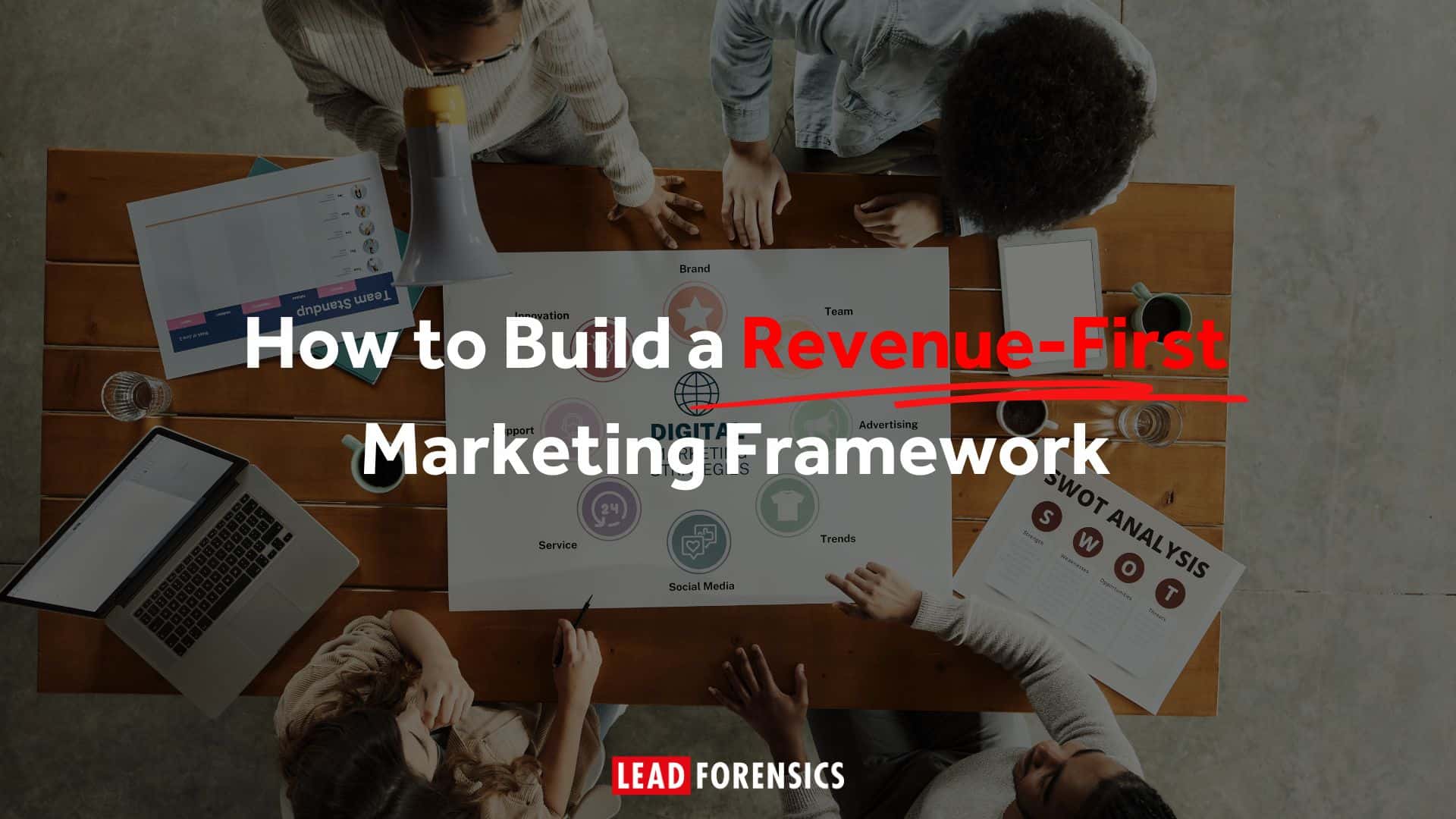In this upcoming blog, we’ll explore the factors driving the evolution of the sales role, the new skills and strategies you need to stay relevant, and the biggest challenges you’ll face in today’s market. We’ll also share advice for staying ahead of the curve and thriving in this new sales era.
So, if you’re ready to embrace the sales revolution and adapt to survive, join us for a deep dive into the future of sales and the end of traditional salespeople.
In this webinar, you’ll learn essential sales tactics to add to your toolkit, including building rapport and selling to humans, recycling traditional methods with a modern outlook, and best practices for closing deals. Don’t miss out on this opportunity to take your sales skills to the next level.
The Evolution of Sales: How the Traditional Salesperson’s Role has Changed in Recent Years
The sales industry has seen significant changes in recent years, and the rise of technology and social media has had a significant impact on how salespeople reach and engage with their prospects. However, some argue that these changes have come at a cost, and that the traditional role of the salesperson has been lost in the process.
In the past, the role of the salesperson was simple: sell. The focus was on closing deals and generating revenue, and salespeople were expected to be skilled communicators who could build relationships and convince potential customers to buy. But with the advent of technology, social media, and automated tools, the traditional salesperson’s role has changed.
Today’s sales professionals are using more tools and technology than ever before to connect with prospects. Social media platforms like LinkedIn, Twitter, and Facebook have become essential channels for engaging with potential customers, while automated marketing tools like lead capture forms and email campaigns have become critical components of the sales process.
While these tools have certainly made it easier to reach a wider audience and generate more leads, some argue that they have also shifted the focus away from what should be the core function of sales: communication. In an age where anyone can send an email or post a message on social media, the art of face-to-face or phone communication seems to have been lost.
At Lead Forensics, we believe that communication is still the most critical aspect of the sales process. We use cutting-edge technology to identify website visitors and turn them into leads, but we never lose sight of the fact that these leads are real people with real needs and challenges. We know that building relationships is key to closing deals, and we focus on developing our salespeople’s communication skills so they can connect with prospects on a personal level.
“Sales is the art of communication – convincing someone that they need what you have, and building trust through the process. A skilled salesperson is able to ask questions that their prospects don’t know the answers to, making them the smartest person in the room.”- Benjamin Dennehy in our webinar, Death of the (Traditional) Salesperson.
In addition to communication, we also believe in the importance of persistence. In today’s fast-paced world, it can be easy to give up after a few rejections, but we know that successful salespeople are those who are willing to keep going even in the face of adversity. We empower our sales team to stay motivated and focused on the goal, no matter how many obstacles they encounter along the way.
While technology and social media have certainly changed the way salespeople operate, the fundamental principles of selling remain the same. It’s important for sales professionals to strike a balance between using technology to support their sales efforts and developing strong communication skills to build relationships and trust with their prospects. By staying true to the core principles of selling, salespeople can continue to adapt and thrive in an ever-changing industry.#
Staying Relevant in a Changing Market: New Skills and Strategies for Salespeople
The world of sales has changed drastically in recent years. With the rise of technology and the widespread use of social media, many salespeople have turned to these tools to help them sell more effectively. However, in doing so, they may be neglecting the fundamental skills that are essential for success in sales.
One of these skills is communication. While technology can certainly be useful in certain aspects of sales, such as lead generation and prospecting, it cannot replace the importance of being able to communicate effectively with potential clients. This means having the ability to ask questions, listen actively, think on your feet, challenge assumptions, and plant your feet when necessary.
These skills do not require technology to be effective. In fact, they are best developed through real-world experience, whether that means picking up the phone, knocking on doors, or meeting with potential clients face-to-face. Reading books and watching webinars can certainly provide valuable insights, but they can never replace the value of hands-on experience.
One of the challenges that salespeople face in today’s market is the belief that cold calling is no longer effective. After all, everyone has a phone these days, so how can it be harder than it used to be? However, this belief is misguided. While it is true that people may be more likely to ignore calls from unknown numbers, this does not mean that cold calling is no longer an effective sales strategy. Instead, it simply means that salespeople need to be more strategic in their approach.
For example, rather than simply calling potential clients out of the blue, salespeople can use social media and other tools to research their prospects beforehand and tailor their approach accordingly. They can also focus on building relationships with potential clients before trying to sell them anything. This means finding common ground, being genuine and authentic, and showing a willingness to listen to their needs and concerns.
Another important aspect of successful sales is asking the right questions. However, not all questions are created equal. While some questions may be helpful in gaining basic information about a potential client, they do not necessarily help you get to the heart of their needs and motivations. In order to truly understand a potential client, you need to ask questions that help them discover for themselves that they have a problem that needs to be solved.
“I cannot convince anyone of anything. Therefore, you have to guide potential clients in discovering that they have a problem, realizing that the problem needs to be fixed, and understanding that the problem is costing them a significant amount of money. Without helping them come to these realizations, there is no reason for them to invest in my services.” – Benjamin Dennehy in our webinar, Death of the (Traditional) Salesperson.
This means going beyond surface-level questions like “what keeps you up at night?” and digging deeper into the emotional and psychological factors that may be driving their decision-making. It means getting them to realize for themselves that they have a problem, that the problem is costing them money, and that they need to take action to address it.
The Future of Sales: How Technology Will Shape the Role of the Traditional Salesperson
As technology continues to advance, the sales industry is facing new challenges and changes. One significant development is the potential for artificial intelligence (AI) to take over telephone prospecting, which could make the traditional salesperson obsolete in this area.
The idea behind AI taking over telephone prospecting is that with a structured algorithm and the ability to think on its feet, an AI bot could do the job without the limitations that humans face. This could potentially make the role of the traditional salesperson obsolete in this particular area. While this might seem like a threat to salespeople, it’s important to remember that technology can never truly replace the human touch.
Face-to-face sales will likely always require a human touch, especially for more complex deals. This means that there will still be a need for salespeople who can excel in in-person communication and engagement. If you want to stay relevant in the sales industry, it’s important to develop these skills.
“Face-to-face sales will always require a human touch, especially for complex deals. There will be an elite of people who specialize in the ability to sell once the automated stuff can’t. As a bright person in the sales industry, it’s important to invest in prospecting and in-person communication skills to stay relevant in this ever-evolving landscape.” – Benjamin Dennehy in our webinar, Death of the (Traditional) Salesperson.
Lead Forensics advocates that individuals who aspire to have a successful career in sales should invest in themselves and their communication skills. The foundation of sales is based on effective communication, which encompasses more than just being able to speak eloquently. It also involves actively listening and comprehending the customer’s requirements. Sales representatives must establish a rapport and earn their customers’ confidence. They should be able to modify their communication style to fit the situation and convey complicated ideas in a straightforward and succinct manner.The rise of technology also means that salespeople need to be tech-savvy. They need to be familiar with the latest tools and techniques for selling in a digital world. This includes using social media, email marketing, and other digital channels to reach potential customers.
Sales professionals must have the ability to think strategically, in addition to their communication and technology skills. They must be capable of identifying new opportunities and potential clients while creating innovative solutions to close deals. This requires a deep understanding of the market, as well as the skill to analyze data and make informed decisions.
Succeeding in a Changing Market: Advice for Salespeople Who Want to Stay Ahead of the Curve
One of the biggest challenges facing sales professionals today is the pace of technological change. With new tools and platforms emerging all the time, it can be difficult to keep up. However, those who are willing to embrace new technologies and techniques can gain a significant advantage over their competitors.
One such technique is social selling, which involves using social media platforms to connect with prospects and build relationships. This approach can be highly effective, as it allows salespeople to engage with potential customers on a more personal level and create a sense of trust and familiarity.
Another important factor in sales success is the ability to create value for customers. This means going beyond simply selling a product or service and instead providing real solutions to the customer’s problems. By taking the time to truly understand the customer’s needs and goals, salespeople can create a more meaningful relationship and establish themselves as a trusted partner.
Of course, building strong relationships is easier said than done. It takes time, effort, and a genuine desire to help the customer succeed. However, the rewards can be significant, with loyal customers who are willing to refer business and provide positive reviews.
Consistency is another key element of sales success. This means staying organized, following up on leads, and meeting deadlines. It also means maintaining a positive attitude, even when faced with rejection. By consistently delivering on promises and providing excellent customer service, salespeople can build credibility and trust with customers.
“You can’t just rely on study and theoretical knowledge to succeed in the real world. Sales requires real-life experience and it’s a progression. You have to work your way up and gain valuable experience along the way.” – Benjamin Dennehy in our webinar, Death of the (Traditional) Salesperson.
Ultimately, sales professionals must take control of their own success. This may involve making difficult decisions, and taking responsibility for their own growth and development, seeking out new opportunities for learning and personal growth.
In summary, the sales industry is constantly evolving, and those who want to succeed must be adaptable, value-focused, relationship-driven, consistent, and proactive in taking control of their own success. By following these principles, salespeople can stay ahead of the curve and achieve long-term success in a changing market.
The Most Important Thing for Salespeople to Remember in Today’s Sales Landscape…
In today’s dynamic sales landscape, it’s essential for salespeople to focus on their personal development and take ownership of their success. While external factors such as competition, pandemics, or economic shifts can be challenging, they shouldn’t be used as an excuse for poor sales performance. Instead, salespeople need to look within themselves to identify areas for improvement and work on developing the skills they need to succeed.
Self-assessment is a crucial first step in this process. Salespeople must take a hard look in the mirror and honestly evaluate their skills, strengths, and weaknesses. Once they’ve identified areas for improvement, they can begin developing the necessary skills through training, practice, and mentorship.
“The most important thing for salespeople to remember is that their success ultimately lies within themselves. It’s easy to blame external factors for failure, but the reality is that you have the power to change your situation. Take a hard look in the mirror, identify areas for improvement, and work on developing the skills you need to succeed.” – Benjamin Dennehy in our webinar, Death of the (Traditional) Salesperson.
It’s also important to stay informed about trends and changes in the sales environment. This knowledge can help salespeople adapt their approach and stay ahead of the curve. By combining personal development with a keen awareness of the sales landscape, salespeople can create a roadmap for success and achieve their goals.
Ultimately, the key takeaway for salespeople is to focus on what they can control. While external factors will always be present, success ultimately comes down to a salesperson’s own drive, determination, and willingness to improve. By taking ownership of their development, salespeople can create a path to success and achieve their sales goals.
If you’re looking to stay ahead in the constantly evolving sales market but don’t know where to start, don’t miss our webinar “Death of the (Traditional) Salesperson” hosted by Lead Forensics and featuring Benjamin Dennehy, renowned as the UK’s most controversial sales trainer. This is a valuable opportunity to learn and grow in your sales career, so be sure to check it out!
If you’re curious about identifying the companies visiting your B2B website, don’t hesitate to request a demonstration of Lead Forensics here.









